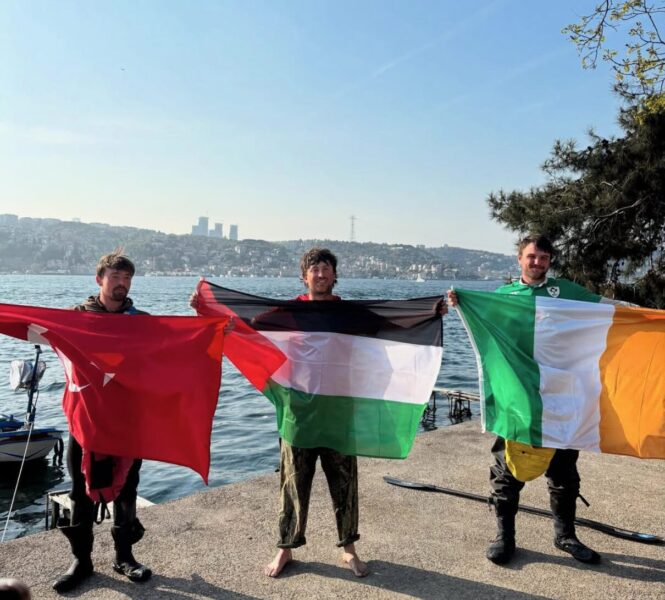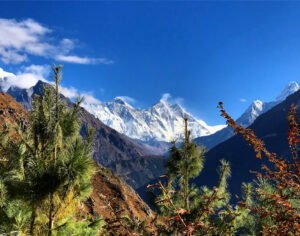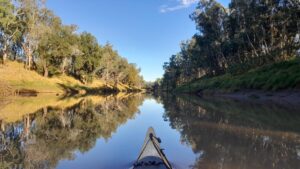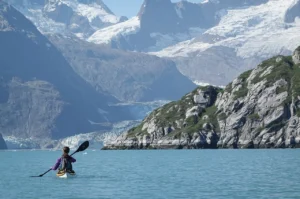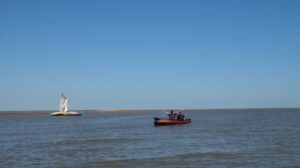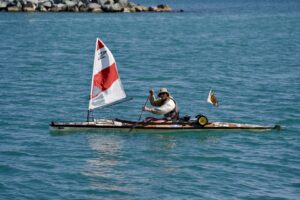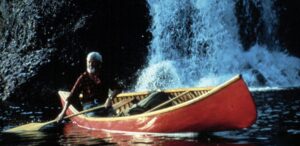Johnny Coyne has become the first person to kayak from Ireland to Asia. The Irish adventurer set out in September 2024 with Liam Cotter. Countryman Ryan Fallow joined the duo later. But only Coyne did the entire distance.
At first, he and Cotter crossed the Irish Sea and the English Channel without support vessels. Then they navigated through numerous European rivers and canals. It wasn’t easy — and not just because of the physical effort.
In France, they didn’t have the right permits, so they were banned from the canals. By the time they sorted that out, the waterways were frozen. Determined to keep their journey human-powered, they dragged their kayaks 350km cross-country through France and then Germany’s Black Forest to the source of the Danube.
This lengthy portage was one of the hardest parts of the expedition. At one point, the wheels of their kayak cart broke, and they were forced to stop for weeks. Winter took hold, and the temperatures plummeted.
Onto the Danube
In Germany, Ryan Fallow joined the expedition, and the trio took to the Danube. The three paddlers were used to rapids, but anticipating the right lines on an unknown river was nerve-wracking. In Austria, disaster struck. Cotter’s boat smashed into rocks in some rapids, opening a significant hole. But chance smiled on the young travelers: They stumbled across two good Samaritans — one who repaired the boat and another who replaced Fallow’s old, unsuitable vessel with a newer one.
Back on the Danube, Cotter dislocated his shoulder during a portage and could not continue. Coyne and Fallow soldiered on through Slovakia and Hungary, where more border crossing problems ensued. On their first night in Croatia, police surrounded their kayaks, convinced they were illegal immigrants.
Yet the pair persisted with unwavering positivity. From Croatia, they paddled through Serbia, Romania, and Bulgaria, resupplying at various towns. Most of the time, they camped along the riverbank but occasionally accepted hospitality from locals.
As the months passed, their equipment began to fail. Their tent leaked, and some of its poles had been lost. By the end of their eight-month crossing, it was held together with tape and sticks.
The Black Sea at last
At the start of April, 210 days after setting off, they reached the Black Sea, their last major milestone before Istanbul. The next big goal was to reunite with Cotter so that he could join them at the finish. After the shoulder injury, Cotter couldn’t paddle but he had remained in the wings, helping with logistics. Now the trio wanted to finish together.
Cotter wanted to stick to their human-powered plan, so as soon as his shoulder mended enough, he started cycling to catch up with his pals in Bulgaria. On day 225, he rejoined them after three months apart, ready to kayak with them for the last week.
The final week started with paddling from Bulgaria into Turkey. Once again, the border crossing was anything but simple. Coyne tried to arrange their entry with the Coast Guard, and a customs boat met them as they approached the border.
However, it informed them that they were not allowed to land. They had to wait on the Bulgarian side in their boats for three hours. The temperature dropped, the water became choppy, and it was dark before they were allowed to get off the water. But still not in Turkey.
Another troublesome border
On the beach, police questioned them and searched their kayaks. As they slept that night, the police refused to leave, to ensure they would not cross the border overnight. The next morning, they were finally allowed to cross into Turkey.
With four days left, their excitement was palpable and only increased when a pod of dolphins swam next to them as they paddled along the Turkish coast. On April 25, they landed in Istanbul to cheers from the friends and family who had come to meet them.
“This has been the greatest moment of my life so far,” Coyne commented as he exited his kayak.
